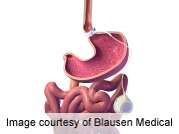In preemies, maternal smoking tied to necrotizing enterocolitis

(HealthDay) -- Maternal smoking has been identified as a risk factor associated with the development of necrotizing enterocolitis (NEC) in premature infants, according to a study published June 11 in Pediatrics.
Cynthia D. Downard, M.D., from the University of Louisville in Kentucky, and colleagues reviewed the medical records of infants with NEC identified from a neonatal intensive care unit database as well as the prenatal and delivery record of the patient's mother. Each of 73 neonates with NEC was matched to two neonate controls who were treated at the same institution.
The researchers found that maternal cigarette smoking correlated significantly with the development of NEC (P = 0.02). There was no correlation seen between maternal gestational diabetes, maternal hypertension, formula feeding, and pathologic chorioamnionitis or uteroplacental insufficiency and NEC.
"These data identified maternal cigarette smoking as the only risk factor that is associated with the development of NEC in premature infants," the authors write. "Our data imply that smoking delivers toxins and nicotine to the uterine microenvironment that can affect microvascular development and may predispose the fetus to future NEC."
The study was funded by the James R. Petersdorf Fund of Norton Healthcare.
More information:
Abstract
Full Text (subscription or payment may be required)
Copyright © 2012 HealthDay. All rights reserved.















